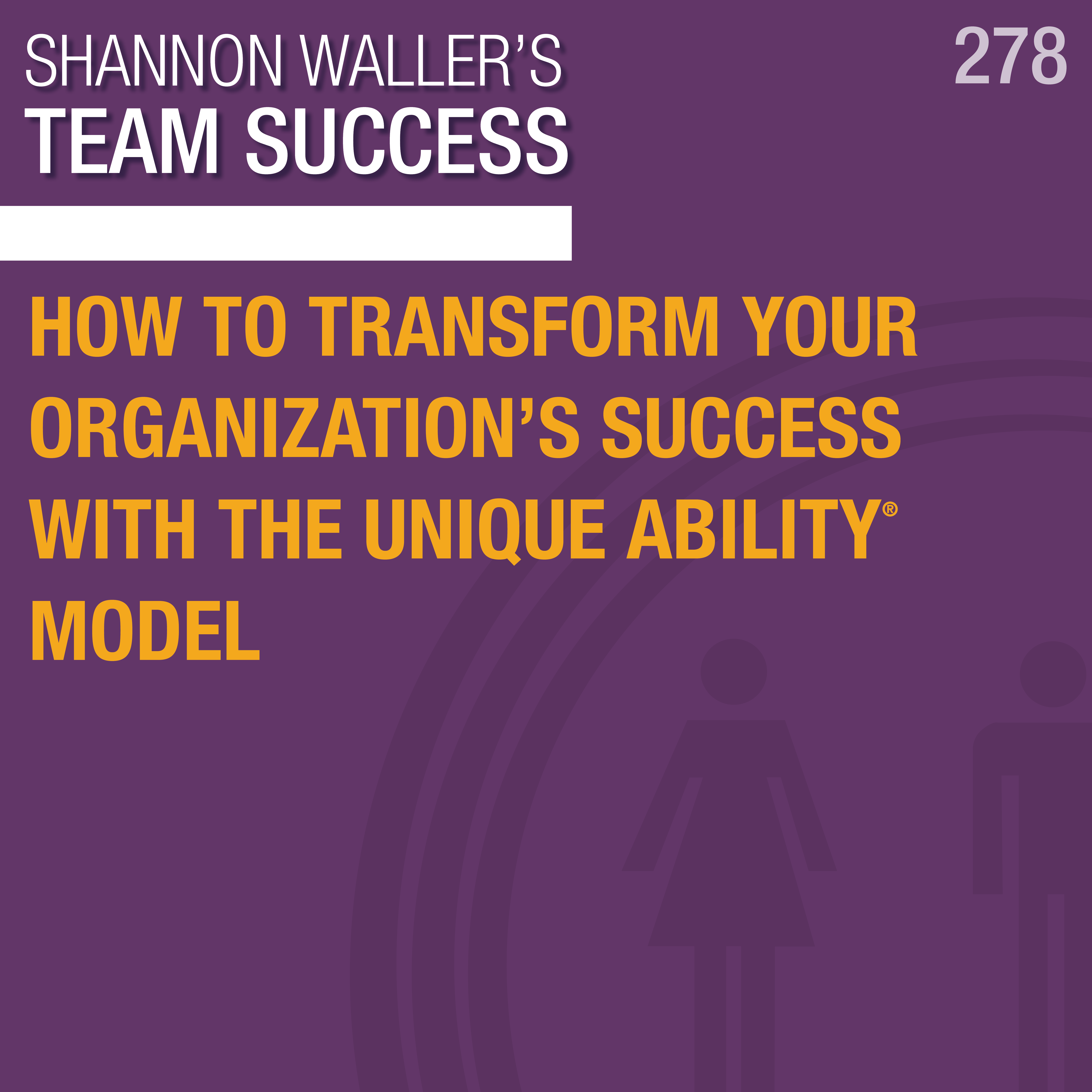Are you leveraging your entrepreneurial company’s unique advantage? In this episode, Shannon Waller reveals how, by getting your team to focus on activities where they have both superior skill and passion, you can ensure your business is always growing, always innovating, and always multiplying its success—and eliminate boredom and stagnation for good.
Download Episode Transcript
Show Notes:
- Entrepreneurial companies have a distinct advantage over bureaucratic organizations because of their flexibility, innovative spirit, and capacity to cultivate a culture that prioritizes individual strengths and passions over conformity and rigid ways of thinking.
- This culture is founded on the Unique Ability® model, which consists of four levels: incompetent, competent, excellent, and unique capabilities, with unique being the most impactful. Here’s what they mean:
- Incompetent: These tasks are areas where team members struggle to achieve results, often leading to negative impacts. Entrepreneurial companies can minimize time spent on these activities, allowing them to concentrate on more productive endeavors.
- Competent: While team members may perform adequately in these areas, they often only meet minimum standards. In bureaucratic settings, employees may feel compelled to remain in this zone due to comfort and familiarity, but this does not foster growth or innovation.
- Excellent: At this level, team members demonstrate superior skills, leading to effective teamwork and often financial rewards. However, remaining in this zone for too long can result in stagnation, as people may become bored and less engaged.
- Unique: This is where the true potential lies. Areas of Unique Ability combine superior skill with passion, resulting in high energy, motivation, and creativity. Entrepreneurial companies have the opportunity to help their teams focus on these abilities, which can lead to significant competitive advantages
- If you want to maximize your company’s potential for success and innovation, strive to have at least 50% of your team’s time spent in their Unique Ability and the other 50% on excellent abilities.
- It’s also important to eliminate tasks that fall under the “incompetent” category, as these activities cost your company money and limit productivity.
- Procrastination on certain tasks is a sign of incompetence in that area, even if the person technically has the capability to do it.
- To prevent team members from boredom and stagnation, move them away from merely competent tasks as quickly as possible.
- Be aware of the “Excellence Trap,” where team members become too comfortable in their superior skills and resist moving toward their Unique Ability.
- It’s essential for entrepreneurs to foster a company culture that encourages and rewards Unique Ability® Teamwork, as this is where the 10x multiplier effect occurs in terms of productivity and innovation.
- To help shift your team members toward working in their areas of Unique Ability, it’s important to regularly engage in conversations with them about what they excel at and love doing.
- Even minor incompetent tasks can consume significant mental energy. Freeing team members from these tasks is essential for maximizing productivity and creativity.
- It’s important to create flexible systems and job descriptions that allow team members to focus on their excellent and unique capabilities, even if it means creating unconventional role structures.
Resources:
Unique Ability®
Book: Unique Ability® 2.0: Discovery by Catherine Nomura, Julia Waller, and Shannon Waller

 Shannon Waller's Team Success
Shannon Waller's Team Success 



